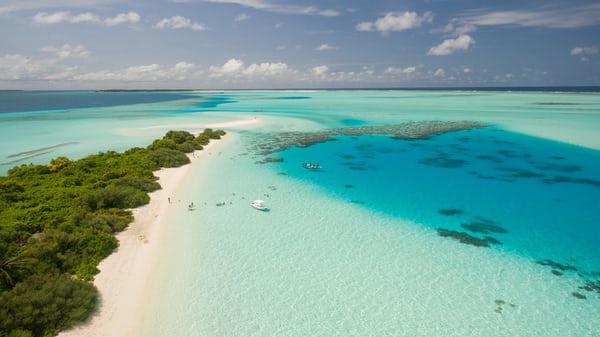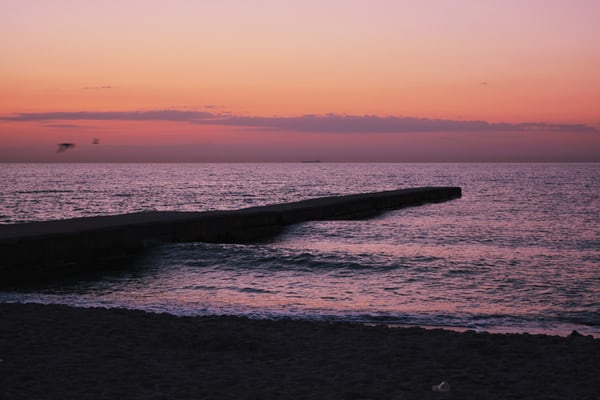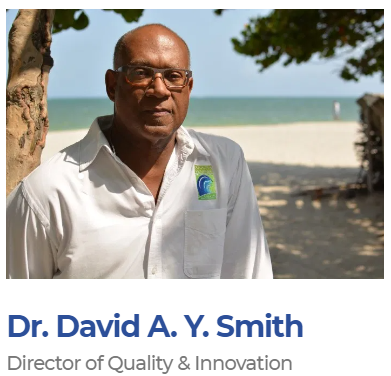David Smith - Coastal Engineer
David Smith - Coastal Engineer & Founder of Smith Warner International
Author: Jesse Davis
What is your job description and what does a typical day look like?
David is a self-employed coastal engineer who works with governments, resorts and coastal communities to resist the effects of storms and erosion with breakwater structures to dissipate wave energy. His day when he first started the company and now are polar opposites. In the early days of managing his soon to be successful company, he was on a plane at least once a month for fifteen years as he travelled to Barbados from Jamaica as he relocated to support his mother during the passing of his father. This lifestyle, being on a plane and travelling to accommodate clients, changed as he stepped back into the second stage of his career. After drafting many successful plans and building the reputation of the company he decided it was best to grow the company in the business sense. In a sense, he has had two different types of days throughout his career, one where he's on a plane going to create a structure to reviewing new contracts and revising the plans of a younger engineer below him.
Where did you go to school and what did you major in?
He attended the University of London for his post-grad masters work in river flow, river drainage and flooding. After this, he studied in Kingston Ontario, at Queen's University. Here he was fortunate enough to study under the worlds leading coastal engineer, whose name would follow him for many years at conferences. From this great mentor, and some trial and error while working, he learned how to solve the puzzle of what nature is doing and how to, not bend it to his will, but to persuade it into making a compromise that benefits both parties.
Did you do anything during school to stay involved with the ocean physically?
While going through school in London he took time off to travel across Europe and experience life on a different continent with some friends. When he moved back to Canada that was no longer an option but he took up sailing, this is a hobby he would keep doing when he travelled to Vancouver Island to start his family.

What got you interested in your job?
During high school, he always had a passion for the ocean as he lived in Jamaica but he was also gifted at math and physics. He noted he never liked chemistry that much which is why he chose the most math and physics that related to the ocean, with the least amount of elements on the periodic table.
What kind of jobs did you have before this one?
He was a lecturer at the University of Trinidad and he also worked for the government of Jamaica in their public works department. This was all on top of continuing his studies as he achieved his master's degree. He had a hard time recalling these jobs as he has been working at the company he founded, Smith Warner International, for twenty-five years constructing beaches, working with governments in the Caribbean to fight beach erosion and building breakwater structures. David started this company with one other person and has grown it to twenty-two people
What kind of volunteer/extracurricular activities do you recommend to students looking to go into this field?
As an extracurricular David recommends learning as much as you can about climate change issues, biotechnology, AI, virology and other topics that can all impact coastal communities. These are also pressing issues that can broaden your toolkit when approaching a problem.
What is the best part of your job? Are there any parts that you don’t like?
The best part of his job is waking up every morning with the opportunity to create change on the global and local scale. He said the thing he liked the most was creating structures himself that come to fruition and make a measurable difference. The worst part of his job is partly due to his success. Having to travel so frequently puts a strain on his relationship with his son and daughter. He added that in retrospect he would have liked to have had a better work to life balance during his career.
Are you working on/studying any unique projects currently?
At this current moment, he is working with the government in Belize in two different locations. The first location is off the coast of their great barrier reef, it is important to note it is the second-largest barrier reef in the world, and the second is in the southern part of Belize in the non-touristic area. He is attempting to incorporate nature-based solutions like beach creation through mangroves to disperse wave energy. In the second location, he is making sand dunes to create a sustainable beach in Southern Belize through a combination of nature-based solutions and hard structures.
What is your favourite ocean organism (or project) and why?
His favourite ocean organism was tough to choose as he does not look at the creatures in the ocean in wonderment but under the view of an engineer trying to help a community. When he does have leisure time he always enjoys the coral reefs as they have a beautiful, colourful, flamboyant appearance yet a complex and important role to play in the economy and the ecology of the places they inhabit. His favourite project was the first one he ever did. He constructed an iconic marina that allowed him to constantly interact with the clients during the four-year project. He designed a physical breakwater model and tested it. It was so impactful as he saw the structures come off the drawing board fully functional. It was also the first residential marina in the English speaking Caribbean.
In your opinion, what is the biggest problem facing the ocean? And how can we take action towards solving it?
As an engineer who looks at climate models to build long-lasting beaches, he believes that the increased storm intensity in the Caribbean is the largest problem. He acknowledged he has a biased view, working out of that area mainly, but when people mention these increased storms he noted there will not be more of them, just more category four’s and five’s that could devastate the coastal communities there.


